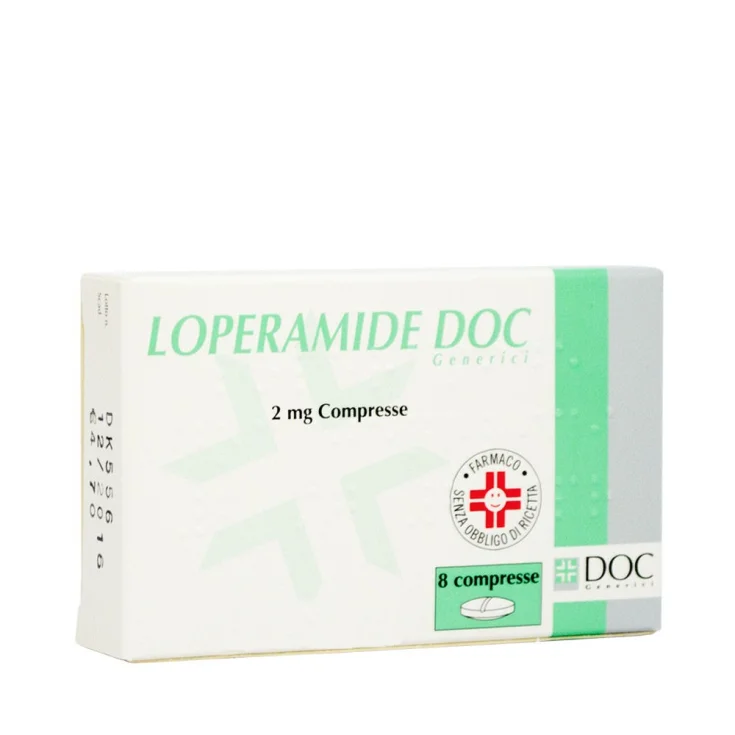Loperamide DOC 2mg 8 Tablets

- Brand: DOC GENERICI Srl
- Product Code: 034512032
- EAN:
- Availability: In 10 - 14 Days
- 3 items
for 4,61€ each - 4 items
for 4,51€ each - 5 items
for 4,42€ each
Loperamide DOC 2mg
Tablets
Symptomatic treatment of acute and chronic diarrhea.
Loperamide 2 mg tablets for oral use
What is it for
Loperamide is a drug used in the treatment of diarrhea due to non-specific causes, together with other measures (eg fluid and salt intake). Loperamide works by slowing bowel movements. This action allows a greater reabsorption of water from the fecal mass which acquires a greater consistency.
How much do you need
In the case of acute diarrhea, the starting dose is 2 tablets (4 mg) for adults and 1 tablet (2 mg) for children over 5 years of age; thereafter 1 tablet (2 mg) after each subsequent evacuation of unformed (soft) faeces. In chronic diarrhea the starting dose is 2 tablets (4 mg) for adults and 1 tablet (2 mg) for children per day; this starting dose should be adjusted until 1-2 solid bowel movements per day are achieved, which is usually achieved with a maintenance dose of 1-6 tablets (2 mg -12 mg) per day. The maximum daily dose for chronic and acute diarrhea is 8 tablets (16 mg) per day for adults; in children the dose must be related to body weight (3 tablets / 20 kg) but must not exceed a maximum of 8 tablets per day. The duration of treatment should never exceed 2-3 days, unless otherwise indicated by the doctor.
How and when to take
Loperamide tablets should be taken with some water.
The most commonly reported side effects are constipation, flatulence, headache, nausea and dizziness. Reactions such as drowsiness, dry mouth and skin rashes have also been reported Loperamide should not be used as antidiarrheal therapy in case of acute dysentery, characterized by blood in the stool and high fever, in case of acute ulcerative colitis, in case of bacterial enterocolitis caused by invasive microorganisms such as Salmonella, Shigella and Campilobacter. The drug should not be used when blocking peristalsis is to be avoided due to the possible risk of significant consequences including ileus, megacolon and toxic megacolon.
If no improvement in symptoms is observed within 48 hours, administration of loperamide should be discontinued and medical advice should be sought. Interactions may occur with drugs having pharmacological properties similar to those of loperamide or drugs that can slow intestinal peristalsis (for example anticholinergics), as the effects of loperamide could be enhanced.
Loperamide is not recommended during pregnancy and breastfeeding.






